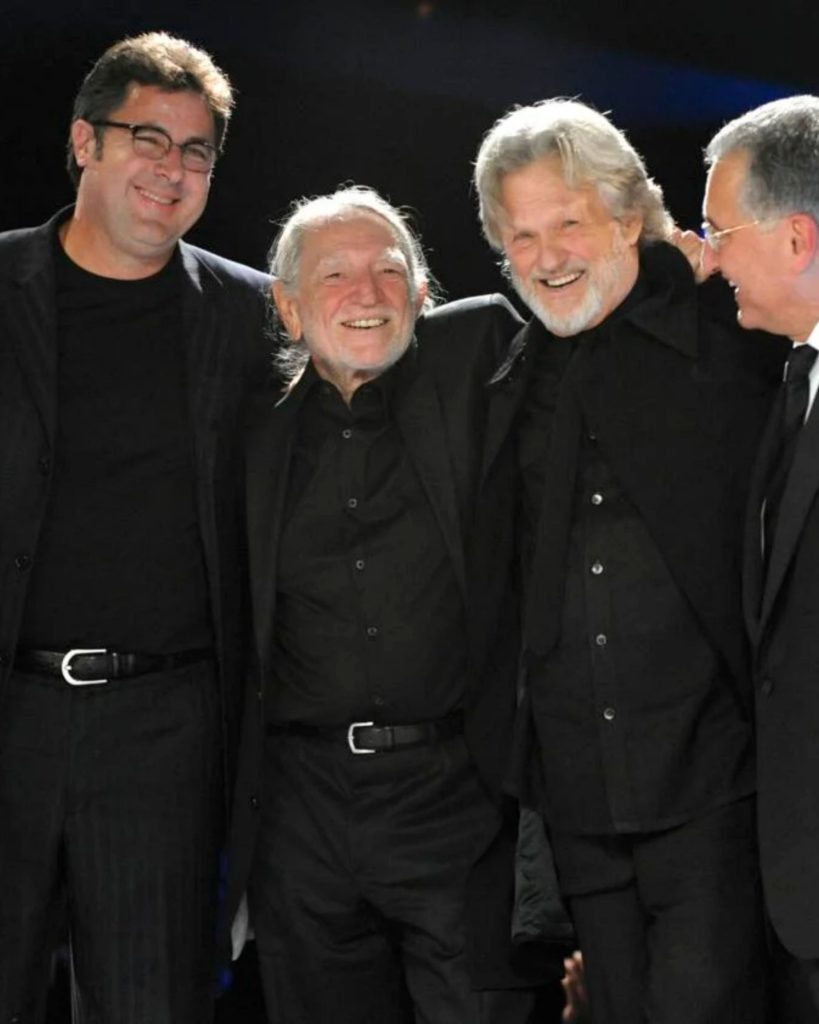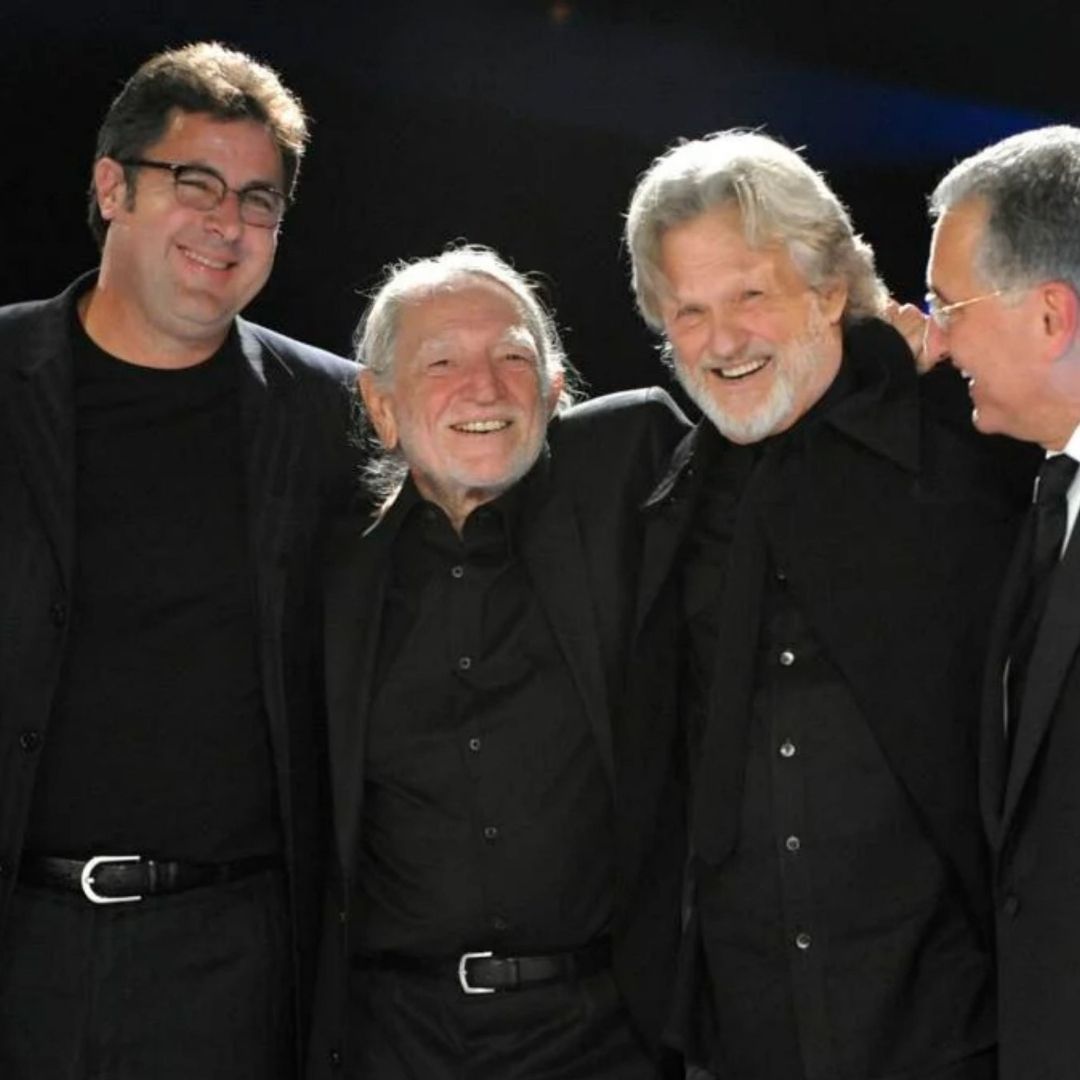
Introduction
The first time I heard “Blue Eyes Crying in the Rain,” I was on a long road trip through the heart of Texas. The sun was setting, casting a golden hue over the open landscape, and Willie Nelson’s soulful voice filled the airwaves. It was a moment where music and environment converged perfectly, leaving an indelible mark on my appreciation for storytelling through song.
About The Composition
- Title: Blue Eyes Crying in the Rain
- Composer: Fred Rose
- Premiere Date: Originally recorded by Roy Acuff in 1947; popularized by Willie Nelson in 1975
- Album: Red Headed Stranger (1975)
- Genre: Country
Background
“Blue Eyes Crying in the Rain” was penned by the prolific songwriter Fred Rose, co-founder of Acuff-Rose Music. The song initially appeared in 1947, performed by country music pioneer Roy Acuff. Over the years, it saw various renditions but found its most profound impact when Willie Nelson included it in his 1975 concept album, Red Headed Stranger.
At the time, Nelson was reinventing himself both personally and professionally. Leaving Nashville for Austin, he sought creative freedom away from the constraints of the traditional country music industry. Red Headed Stranger was a bold move—a minimalist album that told the story of a fugitive on the run after killing his wife and her lover. “Blue Eyes Crying in the Rain” served as a pivotal point in the narrative, embodying themes of love, loss, and redemption.
The song’s reception was extraordinary. It became Nelson’s first No. 1 hit as a singer and revitalized his career, solidifying his place as an icon in country music. The simplicity and emotional depth resonated with audiences, making it a timeless classic.
Musical Style
The musical arrangement of “Blue Eyes Crying in the Rain” is remarkably sparse, featuring Nelson’s gentle guitar strumming and distinctive, emotive vocals. This minimalist approach allows the song’s profound lyrics to take center stage. The melody is straightforward, yet its simplicity contributes to its haunting beauty. The use of acoustic instrumentation creates an intimate atmosphere, drawing listeners into the personal sorrow conveyed in the song.
Lyrics
The lyrics tell the story of a man reflecting on a lost love, symbolized by the image of blue eyes crying in the rain. Themes of regret, memory, and the hope of reunion in the afterlife are woven throughout the song. The poignant storytelling captures the universal experience of love and loss, which, coupled with Nelson’s heartfelt delivery, amplifies the song’s emotional impact.
Performance History
After its release on Red Headed Stranger, “Blue Eyes Crying in the Rain” quickly climbed the charts, reaching No. 1 on the Billboard Hot Country Singles. The song marked a turning point not just for Nelson but for country music, showcasing that simplicity and authenticity could triumph over the heavily produced sounds dominating the genre at the time.
Over the years, the song has been covered by numerous artists, including Johnny Russell and Charley Pride, each bringing their unique style to the timeless piece. Its inclusion in Nelson’s live performances remains a staple, often evoking a powerful response from audiences.
Cultural Impact
“Blue Eyes Crying in the Rain” transcended the country genre, becoming a song recognized and beloved by a wide audience. It played a significant role in the outlaw country movement, which challenged the norms of Nashville’s music industry. The song has appeared in films and television shows, further cementing its place in popular culture. Its universal themes and emotional depth have made it a standard, influencing songwriters and musicians across genres.
Legacy
The enduring importance of “Blue Eyes Crying in the Rain” lies in its simplicity and emotional honesty. Decades after its release, it continues to touch new generations of listeners. The song exemplifies the power of storytelling in music and remains a testament to Willie Nelson’s artistry and Fred Rose’s songwriting prowess.
Conclusion
“Blue Eyes Crying in the Rain” is more than just a song; it’s an experience that captures the essence of heartfelt storytelling. Whether you’re a longtime fan or discovering it for the first time, I encourage you to listen to Willie Nelson’s rendition on Red Headed Stranger. Let the simplicity of the music and the depth of the lyrics take you on a reflective journey—it’s a timeless classic that speaks to the soul
Video
Lyrics
In the twilight glow I see
Blue eyes crying in the rain
When we kissed goodbye and parted
I knew we’d never meet again
Love is like a dying ember
And only memories remain
And through the ages I’ll remember
Blue eyes crying in the rain
Some day when we meet up yonder
We’ll stroll, hand in hand again
In a land that knows no parting
Blue eyes crying in the rain
